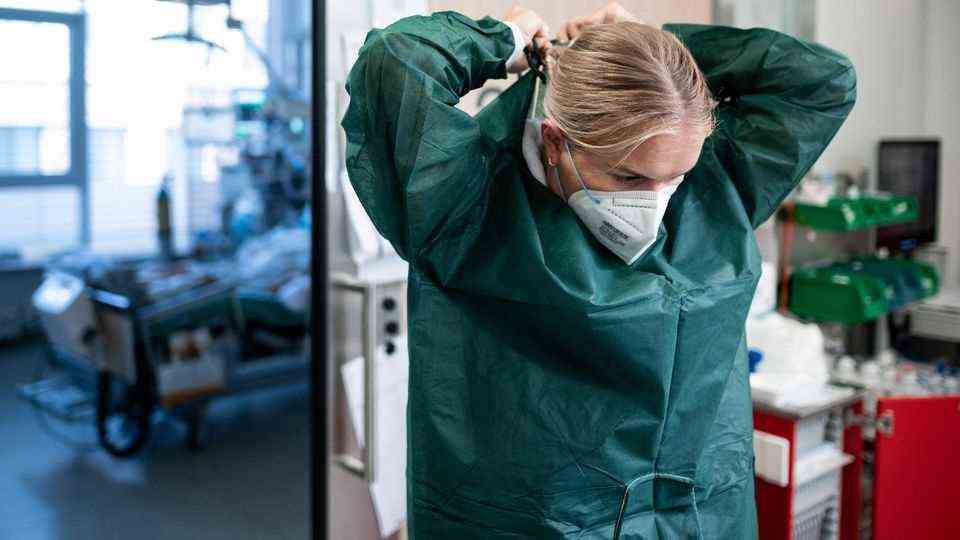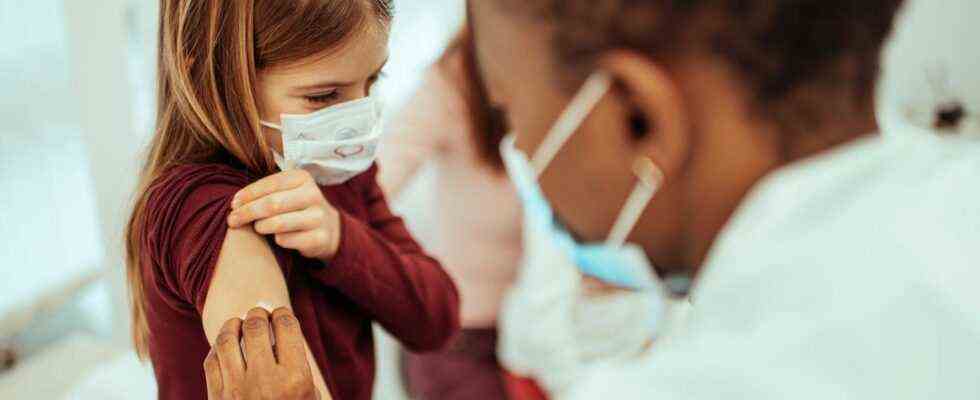Age group 5 to 11 years
In the USA, children will be vaccinated against Corona with immediate effect. When does it happen in Germany?
In the registration study, the corona vaccine from Biontech / Pfizer showed a very high protective effect for children between five and eleven years of age
© bogdankosanovic / Getty Images
The CDC health authority has also given the green light: The corona vaccination campaign for children between the ages of five and eleven is starting in the USA. The most important questions and answers.
In the USA, the wait is over for many families: Since yesterday, the CDC has been recommending the children’s corona vaccine from the manufacturer Biontech / Pfizer for the age group of five to eleven year olds. The US FDA had already granted the vaccine emergency approval last week. The vaccination campaign should start this week or next week at the latest.
There is a spotlight on the approval, as no corona vaccine has been approved for this age group in the USA and the European Union. Children and adolescents from the age of twelve, on the other hand, have been able to protect themselves against Covid-19 with vaccinations for several months. The vaccine from the German manufacturer Biontech and its US partner Pfizer has already been approved for them. Another mRNA vaccine – that of the US company Moderna – is also possible.
Children rarely get seriously ill with Covid-19. However, there are exceptions: In the United States, 1.9 million children between the ages of five and eleven have contracted the virus. More than 8,300 of them had to be treated in a clinic, and more than 100 children died. It is also known that the coronavirus can lead to a so-called multisystemic inflammatory syndrome in children – a serious long-term consequence of an infection. The US lists more than 2,300 cases. Long Covid complaints in children have also already been described. With the approval of a vaccine for this age group, there is reasonable hope that such cases can be prevented in the future.
What data are available on the vaccine so far? And when can you expect approval in the European Union (EU)? An overview of the most important information.
How is the vaccine made up?
Like the adult vaccine from Biontech / Pfizer, the vaccine for younger children is based on the well-known mRNA technology. Vaccines of this type contain the blueprint for a protein of the coronavirus: the spike protein with which Sars-CoV-2 docks to human cells.
As with the adult vaccine, two doses at an interval of three weeks are required for full vaccination protection. The dosage is lower. It is ten micrograms of mRNA in each case, which is a third of the amount in the adult vaccine.
How well does the vaccine work? What do you know about possible side effects?
The manufacturers Biontech / Pfizer recently submitted dataaccording to which the children’s vaccine was 90.7 percent effective in the age group from five to eleven years of age. This corresponds to a very high protective effect. Around 4,500 children took part in the associated study.
Based on this study, there are no safety concerns. However, the number of test subjects is still quite small. According to some experts, it is therefore not yet possible to reliably estimate the likelihood of possible rare side effects. After the second dose of previously approved mRNA vaccines, a certain tendency towards heart muscle and pericardial inflammation was observed in young men. The inflammation is usually easy to treat and also occurs after Covid 19 diseases.
The health authorities in the USA will therefore be particularly vigilant in the coming weeks as to whether this rare side effect also occurs after vaccinations with the children’s vaccine. However, experts assume that – should the side effect occur – it will be rare.
Once approved, the safety of vaccines is continuously monitored. In Germany, the Paul Ehrlich Institute is for this (PEI) responsible.
When can children in Germany be vaccinated against the coronavirus?
The companies Biontech / Pfizer have already applied for EU-wide approval of the vaccine for children between the ages of five and eleven. It is likely that the responsible body – the European Medicines Agency (EMA) – will make a decision on the application by Christmas. If it gives the green light, the European Commission must formally approve the approval. The delivery of the vaccine and the vaccinations can then begin.

It is questionable, however, whether the Standing Vaccination Commission (Stiko) will have already made a recommendation for the age group at this point in time. The scientific body is known to act cautiously in the absence of reliable data. When vaccinating children between the ages of 12 and 17, Stiko initially recommended the vaccine for patients with certain pre-existing conditions. The general recommendation only followed a few weeks later, when more data were available. It is true that a Stiko recommendation for a vaccination is not absolutely necessary. In practice, however, many medical professionals orientate themselves on it.
Stiko boss Thomas Mertens had so far been cautious about a possible recommendation for children between five and eleven years of age and referred to the low number of test subjects in approval studies. “Such approval studies are not designed to exclude all risks simply because of the number of test subjects,” Mertens said in an interview with the “SWR”. Since children rarely get seriously ill with Covid-19, you have to be very sure that the vaccine is “also very safe”.
When might a vaccine be available for younger children under the age of five?
The manufacturers Biontech / Pfizer are already testing a vaccine for children under five years of age in clinical studies. The vaccine is dosed a little lower and contains three micrograms of mRNA. According to the manufacturer, the first results of these investigations could soon be published. Approval for this age group is only granted if the responsible health authorities come to the conclusion that the benefits of the vaccine outweigh any possible risks.

